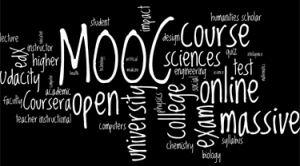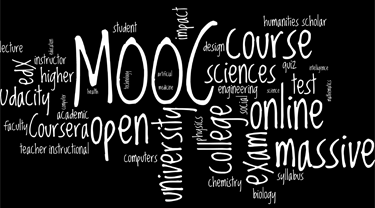 Philosophy professors at a public California University have spurned an offer to be replaced by online courses which are part of the edX initiative to offer lectures from Harvard, MIT and other top-level colleges to students at other universities in the form of video clips delivered on line. The San Jose State University professors point out in a public letter that the drive to cut education costs by replacing hands-on teaching with film clips constitutes a gross degradation of the educational experience their students will receive; that video teaching isn’t half as good mind fodder as reading a textbook is; and that it would be crazy for them to passively agree that a video lecture can teach students better than themselves, as real life professors, can.
Philosophy professors at a public California University have spurned an offer to be replaced by online courses which are part of the edX initiative to offer lectures from Harvard, MIT and other top-level colleges to students at other universities in the form of video clips delivered on line. The San Jose State University professors point out in a public letter that the drive to cut education costs by replacing hands-on teaching with film clips constitutes a gross degradation of the educational experience their students will receive; that video teaching isn’t half as good mind fodder as reading a textbook is; and that it would be crazy for them to passively agree that a video lecture can teach students better than themselves, as real life professors, can.
 There’s some merit in the philosophers’ arguments, but it’s a little disturbing that professionals claiming to be at the top of their game in a thought field, fail in a four page letter to point out the most salient failure of big research universities. Being that this might be their most compelling argument, it was conspicuous in its absence: what most distinguishes small post-secondary school from large ones, is the hands-on learning interactions students can get at the small schools from men and women who have actual experience in their fields, a boon which is often not available at big ones.
There’s some merit in the philosophers’ arguments, but it’s a little disturbing that professionals claiming to be at the top of their game in a thought field, fail in a four page letter to point out the most salient failure of big research universities. Being that this might be their most compelling argument, it was conspicuous in its absence: what most distinguishes small post-secondary school from large ones, is the hands-on learning interactions students can get at the small schools from men and women who have actual experience in their fields, a boon which is often not available at big ones.
In other words, the edX courses being offered through Harvard probably aren’t much different from research universities’ large classroom lectures, where graduate students convey the concepts of professors who are too busy lecturing working on research projects with other grad students, or lecturing off campus, to teach their own students. Phil Greenspun, who arguably may have started the online courseware movement and who is one of the fathers of the internet, recently shared advice with some of his favorite young people that addresses the topic of education quality overall at research Us
Economists found that people admitted to Ivy League schools who chose to attend state schools instead ended up with the same income. Being smart enough to get accepted to a top school has some value but actually attending the top school doesn’t have any value compared to U. Mass. And the most prestigious schools are research universities (e.g., MIT, Stanford, Princeton, etc.). It isn’t really even part of a professor’s job to teach undergrads and, in fact, they do very poorly at teaching.
It’s also a bit off-putting that the SJSU professors assume that all MOOC courses use the same format as the edX courses, but there are many flavors of MOOC, including interactive courses which operate independently of formal teaching institutions.
I came away from reading the letter, thinking that if those SJSU professors want to remain relevant in today’s changing educational landscape, they need to up their game, starting with actualizing their technology intelligence and moving quickly along to assessing merit in what other teaching programs offer, with an eye towards identifying niches they could carve out for themselves as both communication and education evolve: as they are bound to do.


Good observations, Kimi.
I think many of the letter’s weaknesses stem from the authors’ field. Being philosophers, they’re not interested in the hands-on experience of (say) music or engineering.
I’m sure you’re right, Bryan. Thanks for sharing that letter on FB. It made for very interesting reading.